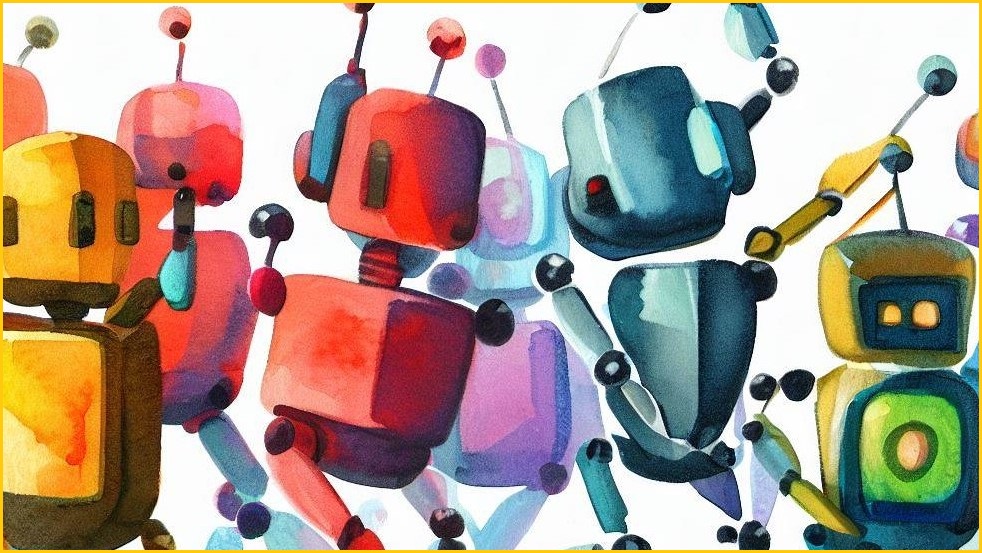Artwork created by generative AI platforms cannot be registered for copyright protection because it lacks “human authorship”, a US federal court has ruled in a significant decision with implications for the flood of new AI-generated content being produced on a daily basis.
The decision, which was handed down this month in the US Federal Court of the District of Columbia, rejected an appeal by Dr Stephen Thaler, a materials scientist and researcher who – as president and CEO of Missouri-based Imagination Engines Incorporate (IEI) – years ago designed an AI algorithm called the Creativity Machine.
In 2012, this algorithm created an image called A Recent Entrance to Paradise, which Thaler tried, unsuccessfully, to register through an application to the US Copyright Office – which administers the US Copyright Act 1976 – and legally jousted with the body for many years before it last year issued a final ruling denying the copyright.
Despite attempting a range of legal arguments – including that the long-held human authorship requirement is “unconstitutional and unsupported by case law”, and that he owned the copyright because the Creativity Machine generated it under a work-for-hire arrangement – the Copyright Office’s Review Board remained unconvinced.
Thaler “must either provide evidence that the Work is the product of human authorship or convince the Office to depart from a century of copyright jurisprudence,” the board concluded. “He has done neither.”
The latest court decision sided with the Copyright Office and its commissioner, Shira Perlmutter, at whom Thaler directed his latest lawsuit.
“Copyright is designed to adapt with the times,” Judge Beryl Howell wrote. “Underlying that adaptability, however, has been a consistent understanding that human creativity is the sine qua non at the core of copyrightability, even as that human creativity is channelled through new tools or into new media.”
“Copyright has never stretched so far as to protect works generated by new forms of technology operating absent any guiding human hand, as plaintiff urges here,” she added. “Human authorship is a bedrock requirement of copyright.”
Just how illegal is generative AI, anyway?
Thaler’s legal failure has left legal and AI experts speculating about the decision’s long-term implications – and how it might affect planned uses for generative AI technology such as the writing and even creation of Hollywood movies.
Continuing years of discussion on the matter, it may also have implications for the ownership of AI-generated artworks, which have already vexed the art world after AI-created images won art prizes and photo competitions, and set sales records.
The Australian situation was evaluated late last year by the likes of law firm King and Wood Mallesons (KWM), which published a guide on ownership of AI-generated works – just weeks before the emergence of tools like ChatGPT and Midjourney completely changed the conversation.
Previous analysis pointed to the uncertainties around AI-created works as a “current gap in Australia’s copyright law regime”, but no lawsuits like Thaler’s have yet been filed here, KWM partners Kim O’Connell and Cate Nagy noted in their recent review of local laws – in which they wrote that “in the case of AI systems it is untested whether the initial parameters determining how the dataset is collated involve sufficient intellectual effort by a human.”
“Where an AI system is updated based on inputs from users or instructions to use additional training data,” they wrote, “there will be a stronger argument that the resulting evolved system attracts copyright protection… this issue [of human authorship] may arise, but might not be insurmountable in all cases.”
The need to stick to the facts of Thaler’s suit meant the US Copyright Office and Federal Court couldn’t consider whether human direction of a generative AI tool might change the outcome – but one analysis pointed out that the decision “leaves open the extent to which creators who are more involved in the conception and creation of a work may claim copyright… Subsequent cases will no doubt explore this boundary.”
Questions about copyright aren’t the only legal battle being waged against generative AI: ChatGPT developer OpenAI, in particular, has recently been targeted by lawsuits from book authors, software developers, and others alleging that training AI tools with copyrighted materials represents mass infringement.
Such claims will, one UNSW expert has argued, hinge on whether the use of the copyrighted materials caused “potential economic loss” and violated fair dealing provisions – meaning that cases like the book authors’ lawsuit “would likely fail in Australia”.
Yet no less than the New York Times is said to be considering a lawsuit, confirming that AI’s legal complexities are still only beginning as experts warn that OpenAI could theoretically be forced to delete its entire training database.










